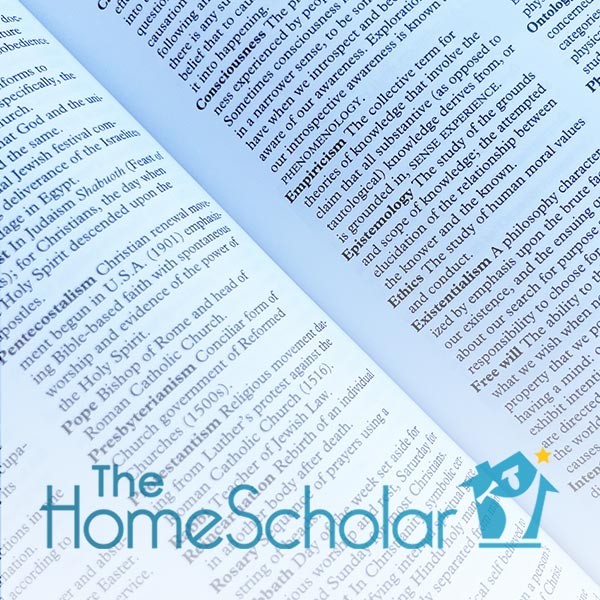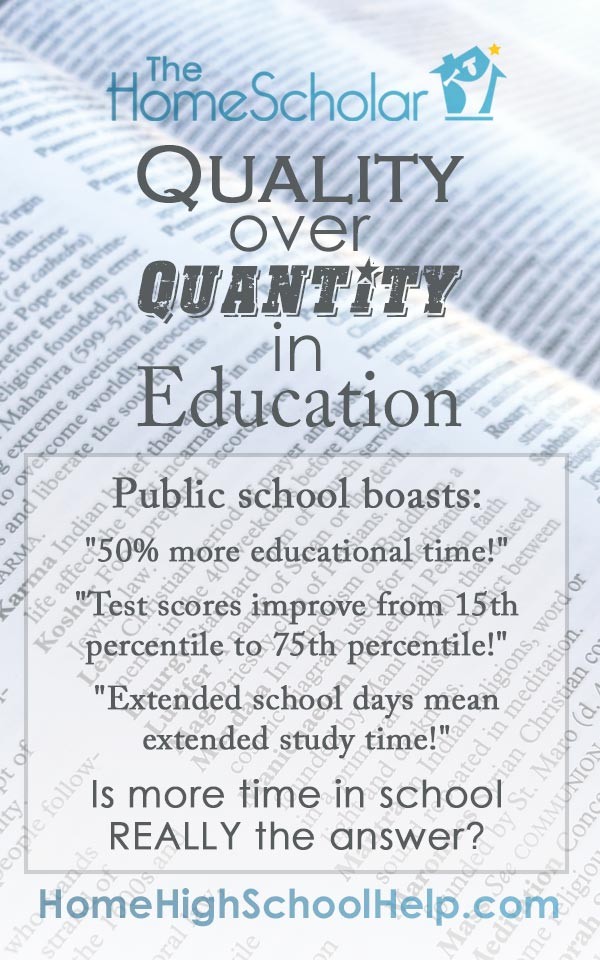Headline: NEW and IMPROVED Public Schools! — Now with 50% MORE Education!!
It is amazing what you can find on Public Access TV on a lazy Saturday morning. For no apparent reason, I was watching a Department of Education panel discussion featuring representatives of several charter schools in New Jersey. One school, which had a waiting list of 1500 families, featured an extended school day (7:30 AM – 5:30 PM), an extended school week (every other Saturday,) an extended school year (mid-August through the end of June) and truckloads of extended homework. The panelist boasted that this allowed the students to get “50% more educational time” than other public-school students. The results? Average test scores went from the 15th percentile to the 75th percentile in four years.
Impressive? Absolutely, but at what cost?
“50 percent more educational time” can also be translated as “50% less time with the family.” For younger kids, it also means “50% less time playing with friends,” “50% less time for delight-directed learning,” and “50% less time getting to know grandparents.” For older students, it can mean “50% less time developing their area of passion,” “50% less time giving back to the community through church or public service,” and “50% less time for meaningful employment.”
Are the results worth it? I suppose it depends on your perspective. If your goal is higher test scores regardless of the collateral damage, then congratulations. If your goal is raising children into educated citizens, while at the same time building strong cross-generational relationships you might want to consider other options.
Homeschooling, whether classical, eclectic, or unschooling, is a profoundly efficient way to educate children. You can also gain that “extra FLAV-R boost” of an actual education while still having time for the other important aspects of growing up. Do we really need to sacrifice childhood, family, faith, and friends on the Alter of Education?
NO! Education is extremely important, but it is not the MOST important. Parents must keep a firm grasp on their goal and not accept the fashionable belief that a quality education is only possible by spending exorbitant amounts of time in a classroom.
But what makes homeschooling so efficient? I believe it is because of two fundamental factors: the teachers and the learning environment. First, homeschooling is education delivered by people who know their children deeply, love them profoundly and are committed to them unconditionally. These qualities produce an educator who will devote their time, energy, and mental bandwidth to the thorough, yet developmentally appropriate education of their child. In addition, homeschooling is education delivered in a secure environment, devoid of harassment and intimidation. Children are safe to learn and explore. Taken together, these two factors have the same effect on children as taking a regulator off a high-performance race car. We were absolutely amazed at the amount and the speed at which our children learned when we started homeschooling. Those of us who “tasted public school” before beginning homeschooling know this perhaps better than those who have homeschooled their children from the start.
The massive waiting list typical of Charter Schools indicates a profound hunger in society for improving the ways we educate our children. If you are seeking alternatives to what the current system offers, you need only to turn your heart towards home. Homeschooling through high school builds strong, confident and educated citizens while strengthening those vital relationships that will last a lifetime.
And you can do it in 50% less time, 100% less anxiety, and 1000% more confidence!





